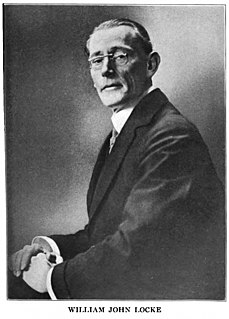A Quote by Lionel Shriver
For women, marriages foreclosed often resulted in an accumulation of booty; for men, these failed projects of implausible optimism were more likely to manifest themselves in material lack. It was hard to resist the metaphorical impression that women got to keep the past itself, whereas men were simply robbed of it.
Related Quotes
Back in the days when men were hunters and chest beaters and women spent their whole lives worrying about pregnancy or dying in childbirth, they often had to be taken against their will. Men complained that women were cold, unresponsive, frigid... They wanted their women wanton. They wanted their women wild. Now women were finally learning to be wanton and wild - and what happened? The men wilted.
It was this feminine conspiracy which made Southern society so pleasant. Women knew that a land where men were contented, uncontradicted ans safe in possession of unpunctured vanity was likely to be a very pleasant place for women to live. So, from the cradle to the grave, women strove to make men pleased with themselves, and the satisfied men repaid lavishly with gallantry and adoration. In fact, men willingly gave ladies everything in the world except credit for having intelligence.
Men create their own gods and thus have some slight understanding that they are self-fabricated. Women are much more susceptible, because they are completely oppressed by men; they take men at their word and believe in the gods that men have made up. The situation of women, their culture, makes them kneel more often before the gods that have been created by men than men themselves do, who know what they've done. To this extent, women will be more fanatical, whether it is for fascism or for totalitarianism.
Women have always been more critical of marriage than men. The great mysterious irony of it is - at least it's the stereotype - that women want to get married and men are trying to avoid it. Marriage doesn't benefit women as much as men, and it never has. And women, once they are married, become very critical of marriages in a way that men don't.
I don't think that there's a target audience at all. These stories were in circulation. The stories were told by men, told in the marketplace by men, but also behind doors by women, but there's no real record of this. It's likely they were told by women to children in their interior rooms. The story could be a negative story, they could be presented as a, "Watch out! Women will get round you, do things to you, weave you in their toils." It could be buried in it an old cautionary story about women and their wiles.
Men's clothing is more pure in design. It's more simple and has no decoration. Women want that. When I started designing, I wanted to make men's clothes for women. But there were no buyers for it. Now there are. I always wonder who decided that there should be a difference in the clothes of men and women. Perhaps men decided this.
I think a lot of women who are celebrities and who are very beautiful have terrible problems with their men being very controlling. Women allow themselves to be dominated and controlled by men in all sorts of other ways that are very complicated, you know? I don't really see a lot of women engaging in discussions about the struggles and power relations with men and their lives, like their bosses, boyfriends, husbands, coworkers. I don't see that happening very often, whereas I see a lot of misogyny on the internet. I see a lot of hatred towards women and a lot of fear of women.
From early Colonial days, sex life in America had been based on the custom of men supporting women. That situation reached its heyday in the Twenties when it was easy for any dabbler in stocks to flaunt his manhood by lavishing an unearned income on girls. But with the stock-market crash, men were hard put even to keep their wives, let alone spend money on sex outside the home. The adjustment was much easier on women than on men, who jumped out of windows in droves, whereas I can't recall a single headline that read: KEPT GIRL LEAPS FROM LOVE NEST.
Women and men communicate differently, often on entirely different planes. But just as men have failed us, we have failed them. It has been one of our great collective female shortcomings to presume that whatever we do not perceive simply isn't there, or that whatever is not communicated in our language is not intelligible speech.
































